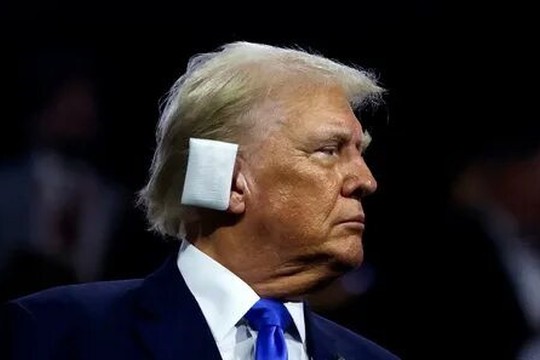Donald Trump after an assassination attempt
Photo: AP
The USA campaign season will likely be defined by spectre of fear, stresses ‘Al Jazeera’.
An already unprecedented race has again been transformed by political violence that is set to loom over the months ahead.
Eight gunshots have transformed the United States election, casting an already unprecedented race into further uncertainty.
But for Rina Shah, a US political strategist, one thing was clear in the immediate wake of the attack: “No matter what, everything changes from here on out.”
“I can say that this shocks the consciousness,” Shah said during a television interview with Al Jazeera. “We have less than 120 days to go and this resets everything.”
Indeed, the rally attack – in which Trump became the 13th US president or presidential candidate to face an assassination attempt, and the eighth to survive – was swiftly met with calls from elected lawmakers for a reset in the polarisation that has come to define modern US politics.
President Joe Biden decried the violence as “sick” before holding a phone call with his opponent late on Saturday. He said “everybody must condemn” the attack.
Trump, in a break from the often caustic rhetoric that had previously defined his campaign, said, “It is more important than ever that we stand united.”
Political violence experts have said it is imperative for leaders to continue to bring the temperature down to prevent further violence or retributive attacks.
Speaking to Al Jazeera in a TV interview after the attack, Colin P. Clarke, the director of research at the Soufan Group, a security consulting firm, said the rally violence “epitomises” the current extremes of US democracy.
Several studies have shown an increase in threats against elected officials and public office holders in recent years, surging after Trump supporters stormed the US Capitol in an effort to overturn Biden’s election victory on January 6, 2021.
Meanwhile, a June survey conducted out of the University of Chicago found that nearly 7 percent of respondents said the use of force was justified to restore Trump to the presidency. Another 10 percent said the use of force would be justified to “prevent Trump from becoming president”.
Security analyst Clarke added that while the violence at the Trump rally could be a unifying moment for Americans, “it’s likely to be divisive”. He predicted a “very dangerous political season”.
His words have since proven prescient, with many Republicans, including Trump’s possible vice president pick, Senator JD Vance, laying blame for the attack on Biden. Vance said Biden’s rhetoric has portrayed Trump as “an authoritarian fascist who must be stopped at all costs”.
At least one Republican legislator has dipped into conspiracy theory, with US Representative Mike Collins of Georgia baselessly calling on authorities to arrest Biden for “inciting an assassination”.
As politics watchers wait to see if the shooting will indeed inflame or soothe US political polarisation, almost every analyst who spoke to Al Jazeera agreed that Trump is likely to receive a bump in support in the wake of the attack.
“The iconic shot of Trump standing with his fist in the air, blood coming down the side of his head, and the flag draped just perfectly over him is really driving the narrative,” James Davis, a Republican strategist, told Al Jazeera.
“He’s going to be seen sympathetically after this from the national narrative,” he said.
Speaking to Al Jazeera, Arshad Hasan, a Democratic strategist, also acknowledged that Trump is likely to gain in the wake of the attack, particularly with the Biden campaign promising to pause communications and advertisements critical of Trump for 48 hours out of respect.
While Hasan said it is wise for Democrats to focus on “humanity” in the wake of the attack, they should also continue to make calls for greater gun control, which Biden had already made central to his presidency. “The time to talk about gun violence is whenever there is gun violence,” he said.
The campaign season, Hasan said, will likely be defined by that spectre of fear.
“There is this fear that violence begets more violence,” Hasan said.
read more in our Telegram-channel https://t.me/The_International_Affairs

 11:27 18.07.2024 •
11:27 18.07.2024 •























